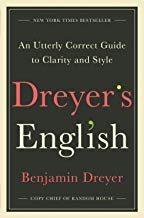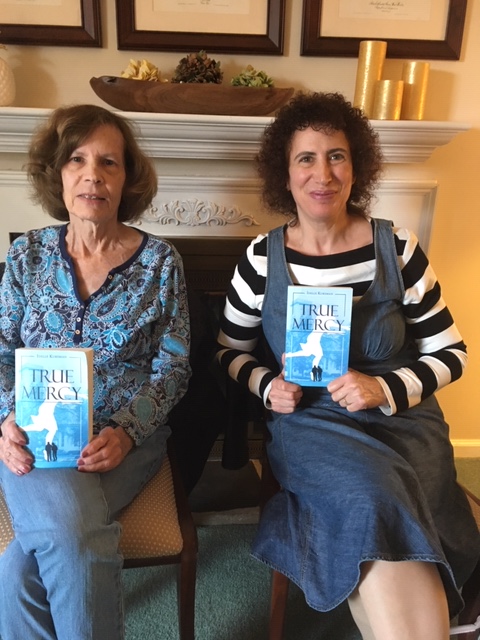My Interview with Eva Lesko Natiello, Best-Selling Author and Book Marketing Consultant
I attended two BookBaby conferences in Philadelphia and heard author and marketing consultant Eva Lesko Natiello speak at both of them. I was so impressed, not only with the success of her best-selling self-published novel, The Memory Box, but also her generosity in giving other writers very practical and useful tips on book promotion. So I decided she would be a great person to interview for my website.
Q. Please tell me about your background and how you began your writing career.
A. My writing career actually started when I left my first career to start a family. I have always had a daily need to do something creative, and it has taken the shape of many things over the years from painting, singing, sewing, cooking, crafts, etc. I actually had never intended to write a book, but I had just moved to New Jersey from New York City where I was living and working. Moving to the suburbs with young children plopped me into a new social circle of suburban moms. There is a definite way things are done in the suburbs that’s different from the way they ‘re done in the city. When I started writing my novel, I knew instantly that I wanted to set this psychological suspense in a bucolic suburb where the community of stay-at-home moms, a sub-culture all its own, would help highlight the juxtaposition of conformity and deception.
Q. How long were you writing before you began your novel? Did you take classes to polish your writing skills?
A. I basically started writing when I was writing my novel—though I didn’t know I was writing a novel at the time! I actually did take a writing class at the New School when I was about halfway through my novel and needed direction. It was an invaluable experience.
Q. How did you come up with the idea for your novel, The Memory Box?
A. One day I read a story in The New York Times about people Googling themselves. It mentioned that a 17-year-old boy, who was living in Los Angeles, Googled himself and discovered he was on a missing persons list in Canada. He had no idea until he Googled himself, that he was a victim of parent abduction. The fact that someone could find out something so personal about himself from a Google search was a fascinating concept to me.
Q. You have spoken to audiences about your journey to becoming a self-published author. Please explain it here briefly because I know other writers will be inspired by your story.
A. To be honest, self-publishing was a back-up plan. I had hoped to be traditionally published. But after three years of querying agents and receiving 81 rejections, I had to make a decision: give up and tuck the manuscript away, or learn everything I could about self-publishing and publish on my own. I had no idea it was going to find so many readers and hit the New York Times and USA Today bestseller lists. So many wonderful things have happened along the way. None of which would have happened if that manuscript were still on my computer.
Q. How were you able to promote your self-published book so that it became a New York Times bestseller?
A. That took a lot of hard work! And a good deal of time. Building sales momentum takes time when you’re an indie and you’re wearing all the hats. I started marketing in my community where people want me to succeed and I received a ton of support. One of the things I did early on, in the first year especially, was to get book clubs excited about The Memory Box. It’s a great book club read and people love to talk about it—mostly because it has a shocking ending. I attended as many book club discussions as I could. To date, I’ve attended over 200!
Q. Do you think the publishing world is slowly beginning to accept self-published authors or is there still a great deal of bias?
A. Oh definitely! Every day you hear about another traditionally published author coming over to the indie side. That’s when you know there’s real value and power to self-publishing.
Q. You have your own business helping writers promote their work. What types of services do you offer?
A. I help authors prepare to self-publish and share everything I do with my own books. I also coach authors on book marketing—giving them the tips and tools they need to increase visibility for their books in order to find readers and sell books.
Q. What type of authors should consider investing in a publicist? Is a marketing strategy always needed?
A. There’s definitely a lot of value in publicity, whether that’s with traditional media, book bloggers, influencers, etc. Before hiring a publicist, an author should consider how commercial their book is, or if it has a unique hook, or perhaps, if writing non-fiction, if the topic is newsworthy.
I also want to add that whether an author hires a marketing consultant or not, every author needs a marketing strategy. It’s impossible for a book to find its readers, gain traction in regards to sales, and have any hope for visibility without marketing. There are just too many books published in any given year. And if you’re an indie author, it’s even harder for your book to get noticed. But once authors learn a few targeted marketing tools and strategies appropriate for their book, genre and for them as an author, it feels incredibly empowering to know that they are moving the sales needle.
Q. What common mistakes do you see beginning authors making that you would like to warn them about?
A. I recently published an article on Medium titled: (Mostly undiscussed) Advice for Beginning Authors. You can read it at https://writingcooperative.com/mostly-undiscussed-advice-for-beginning-authors-73f31e9e869d.
Q. Are there particular books you recommend to help writers develop their craft?
A. I really like Bird by Bird by Anne Lamott and On Writing: A Memoir of the Craft by Stephen King.
Q. Please share some trends you are noticing in the book industry.
A. I see trade authors self-publishing and I see self-published authors publishing some trade books. So, what’s emerging is the hybrid author: someone who publishes in more than one way.
Recently, I had a phone consultation with Eva about a book cover design for my new novel. She provided me a wealth of tips and information. If you are a writer, I highly recommend her services and advice. To sign up for her newsletter, go to https://evanatiello.com/.
My Interview with Eva Lesko Natiello, Best-Selling Author and Book Marketing Consultant Read More »




